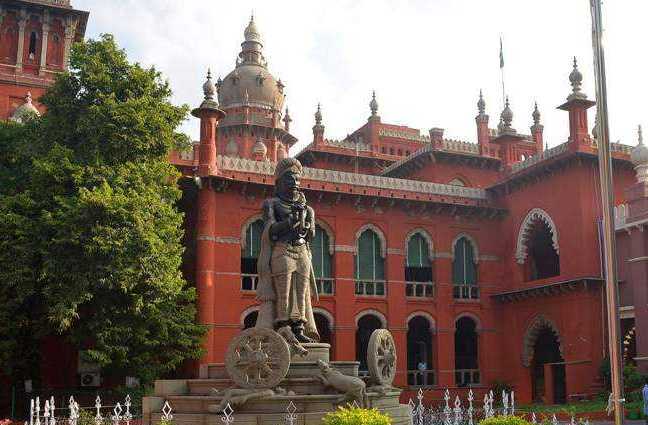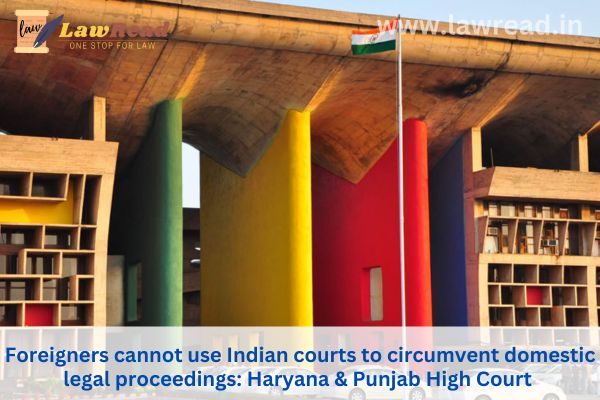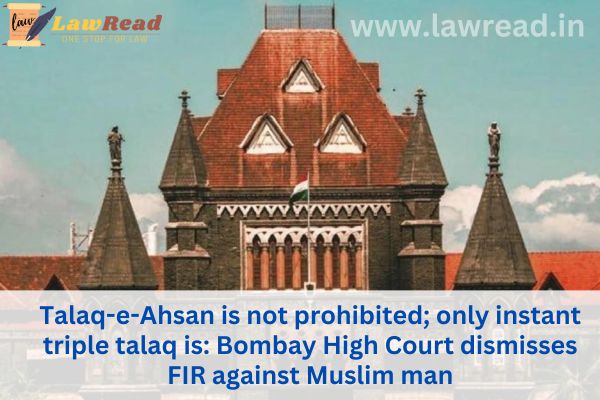News
Foreigners cannot use Indian courts to circumvent domestic legal proceedings: Haryana & Punjab High Court
After his father failed to return a 4-year-old child who had been allowed to travel to India for two to three weeks by a Canadian court, the court reunited the child with his mother.
.jpg)
On Tuesday, the Punjab and Haryana High Court noted that Indian courts cannot be used as convenient means for litigating foreign people who want to avoid going to court in their home countries.
These remarks were delivered by Justice Manjari Nehru Kaul in response to a habeas corpus case filed by the mother of a 4-year-old kid whose father, a Canadian, had taken him to India the previous year.
Both of the child's parents are foreigners, and they are not together. The father was only allowed to take the boy to India for two to three weeks by a Canadian court, but he neglected to bring him back. Rather, he brought a case for the child's permanent custody in India. The Court referred to it as an instance of forum shopping.
"In addition to being devoid of sincerity, respondent No. 8's strategy shows an attempt to abuse jurisdiction by fabricating unforeseen circumstances, which Indian courts cannot accept or tolerate. It must be emphasized that willfully fabricating facts or disobeying international court rulings cannot attract the jurisdiction of Indian courts.
The Court emphasized that in such circumstances, Indian courts must be guided by fairness, equity, and international legal harmony concerns and must not let their venue to be exploited to thwart legitimate foreign judicial orders.
The child's biological mother had petitioned the court to order her ex-husband to produce the child. In November 2024, she claimed that a family court in Ontario had given her sole custody of the child after he had neglected to deliver it.
In light of this, Justice Kaul declared that the father's continuing custody of the minor kid was unwarranted since it went against the rulings of a foreign court with the necessary authority and was not in the child's best interests.
According to the Court, the boy should be sent to Canada under the care of his Bolivian mother.
It cannot be overstated that even in cases when the mother has been separated from the father without cause and the father is perfectly competent of providing for the kid, the child's welfare may nevertheless require that custody remain with the mother. A mother's instinctive and intensely emotional care is unmatched by any substitute, no matter how well-meaning or well-paid, particularly when the child is young or in poor condition.
Given that the child's mother and father are both foreign nationals, the Court had formulated the following queries:
(i) Whether the case's unique facts and circumstances allow for the maintenance of the writ of habeas corpus.
(ii) Whether an Indian court should enforce a custody order issued by a qualified Canadian court.
(iii) Whether the father's actions, which on the surface seem to be outside the authority of Canadian courts, call for judicial action in India.
(iv) Should the mother be forced to seek justice in Canadian courts, as well as in the child's country of origin and habitual residence (alleged detenue)?
In response to the maintainability question, the Court stated that the Supreme Court has ruled that the welfare and best interests of the child, rather than just one parent's legal claim to custody, are the deciding factors in habeas corpus cases involving child custody.
As a result, it is unlawful for the accused detainee to remain in India. In light of this, it stated that allowing respondent No. 8 to keep custody of the child (alleged detenue) in spite of a clear foreign custody order to the contrary would be contrary to the petitioner's legal rights as well as the rule of law, international comity, and, most importantly, the welfare of the child.
The Court noted that the father's actions blatantly indicate an effort to avoid responsibility under the law. It also stated that his strategy is not only devoid of sincerity but also suggests an attempt to influence jurisdiction by fabricating favorable circumstances.
It further noted that it is not open to a parent to ignore court orders, refuse to surrender the child as per undertaking, and then seek to define the resultant custody as lawful under Indian law.
Achieving equilibrium between the principle of comity of nations and the child's welfare is crucial in habeas corpus procedures concerning the custody of a minor. The child's best interests must always come first, even though international comity must be observed. Since the putative detainee in this case is undeniably a Canadian national, his welfare must be evaluated in that light.
The petitioner (mother) was represented by attorneys Abhinav Sood, Sayyam Garg, Anmol Gupta, and Mehndi Singhal.
The Union of India was represented by advocate Lalit K. Gupta.
Punjab was represented by Senior Deputy Advocate General Amit Rana.
The State of Haryana was represented by Assistant Advocate General Yuvraj Shandilya and Senior Deputy Advocate General Rahul Mohan.
Respondent-father was represented by advocates SS Saron, MB Rajwade, Anuj Arya, and Naveen.











